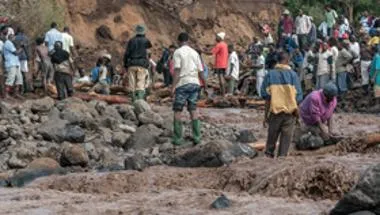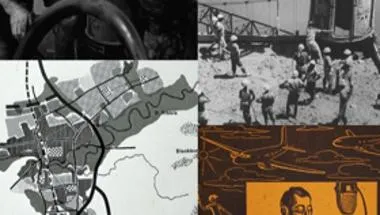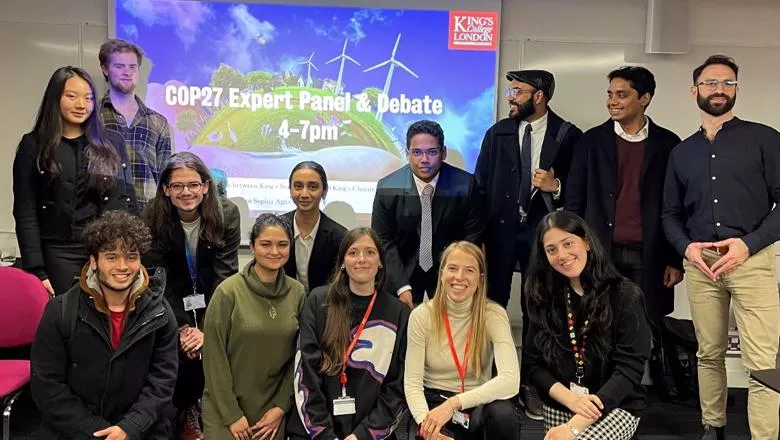Exploring environmental, political and social questions in relation to contested and uneven processes of development. Our research covers six main themes: environment and resources, gender, geopolitics, global health, poverty and migration, and political ecology.
We examine these themes in both urban and rural settings and in a variety of geographical regions including, Africa, Asia and South America.
Projects

Nature4SDGs
This project explores the relationships between the UN’s sustainable development goals (SDGs) and livelihood strategies of poor rural households in the Global South. It involves international collaboration between researchers in the UK, India and Sweden. Poor rural communities are particularly dependent on nature to meet their daily food and income requirements. By analysing household-level data from seven countries, this project explores how key policies – particularly those related to conservation and agriculture – affect the way in which people draw on nature to support their wellbeing. The project aims to help meet the UN’s SDGs while protecting the wellbeing of the poorest communities across the world.

Decolonising infrastructure: Empire, expertise, and the imaginative geographies of the Colombo Plan, 1950-1973
After the Second World War, planners and politicians across Asia attempted to develop national economies through the construction of large infrastructural projects. This meant dependence on flows of capital and expertise provided by western powers. To provide capital and expertise, and to address geopolitical concerns after decolonisation, Western powers set up the Colombo Plan for Cooperative Economic Development in South and Southeast Asia. This project uses original archives to conduct a geopolitical economic analysis of the politics of infrastructure planning in South and Southeast Asia in the context of decolonisation from the British Empire. It questions the extent to which local elites became tied to established centres of world power and how emergent Asian national economies were brought within a post-imperial geography through anti-communist ideology. This project is funded by the Social Science Research Council (USA).

Training Diplomats of Postcolonial African States 1957-1997
Analysing the spatial dynamics of transnational diplomatic training to understand postcolonial state-building in Francophone and Anglophone Africa.

Violence Against Women and Girls in transnational perspective in Rio de Janeiro and London
Examining localised and transnational dynamics of violence against women and girls in Brazil and the UK.
Publications
Activities

London International Boundary Conference
This conference is dedicated to developing multidisciplinary approaches to better manage complex territorial and boundary disputes. It is convened in partnership with the public international law firm, Volterra Fietta.
News
Experts and students highlight the need for decisive climate action at COP27 debate hosted by King's
Students from four London universities come together to debate the key challenges around COP27.

Events

7th London International Boundary Conference
Join us as we explore topical issues and share perspectives on how to address them.
Please note: this event has passed.
Projects

Nature4SDGs
This project explores the relationships between the UN’s sustainable development goals (SDGs) and livelihood strategies of poor rural households in the Global South. It involves international collaboration between researchers in the UK, India and Sweden. Poor rural communities are particularly dependent on nature to meet their daily food and income requirements. By analysing household-level data from seven countries, this project explores how key policies – particularly those related to conservation and agriculture – affect the way in which people draw on nature to support their wellbeing. The project aims to help meet the UN’s SDGs while protecting the wellbeing of the poorest communities across the world.

Decolonising infrastructure: Empire, expertise, and the imaginative geographies of the Colombo Plan, 1950-1973
After the Second World War, planners and politicians across Asia attempted to develop national economies through the construction of large infrastructural projects. This meant dependence on flows of capital and expertise provided by western powers. To provide capital and expertise, and to address geopolitical concerns after decolonisation, Western powers set up the Colombo Plan for Cooperative Economic Development in South and Southeast Asia. This project uses original archives to conduct a geopolitical economic analysis of the politics of infrastructure planning in South and Southeast Asia in the context of decolonisation from the British Empire. It questions the extent to which local elites became tied to established centres of world power and how emergent Asian national economies were brought within a post-imperial geography through anti-communist ideology. This project is funded by the Social Science Research Council (USA).

Training Diplomats of Postcolonial African States 1957-1997
Analysing the spatial dynamics of transnational diplomatic training to understand postcolonial state-building in Francophone and Anglophone Africa.

Violence Against Women and Girls in transnational perspective in Rio de Janeiro and London
Examining localised and transnational dynamics of violence against women and girls in Brazil and the UK.
Publications
Activities

London International Boundary Conference
This conference is dedicated to developing multidisciplinary approaches to better manage complex territorial and boundary disputes. It is convened in partnership with the public international law firm, Volterra Fietta.
News
Experts and students highlight the need for decisive climate action at COP27 debate hosted by King's
Students from four London universities come together to debate the key challenges around COP27.

Events

7th London International Boundary Conference
Join us as we explore topical issues and share perspectives on how to address them.
Please note: this event has passed.





